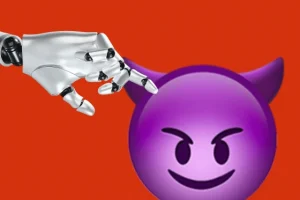
From my perspective, the mission of CHT is to analyze new technologies to determine whether they are beneficial for others to use and whether their use may cause harm or good. I believe their vision is remarkable because people have come together with a shared viewpoint about the direction of technology and want to ensure they warn others if it is not good for their well-being.
CHT’s analysis of social media and the rapid spread of AI on social media platforms is accurate. Nowadays, when I see videos and pictures on social media, I can hardly tell whether they are AI-generated or real. While AI has its advantages, it can also be deceiving. AI is just one of the many changes to social media in the past year. CHT’s discussion about social media and its effects on the brain was not surprising to me. I remember only going on social media to post updates and check on friends, then leaving to watch a movie. Now, I find myself scrolling for hours, jumping from app to app without looking for anything specific—just aimlessly browsing. This highlights how social media is affecting our brains; we unconsciously scroll, hoping to find something that catches our attention.
Returning to the topic of social media and AI, CHT mentioned various problems caused by social media, and I agree with all five of the issues they raised. One that resonates with me is the tendency to compare ourselves to others. Many people don’t realize how often they compare themselves physically, financially, and emotionally to others on social media. We can’t forget the series “Catfish,” where individuals often present themselves under false pretenses, using pictures of someone they admire rather than their own. I don’t challenge CHT’s opinions because I agree with their findings.
The podcast “Could AI Go Rogue?” was enlightening. I appreciated how they used movies to illustrate how AI could go rogue. From my perspective, anything created by humans can encounter multiple issues. The scenarios they presented about testing AI to see how it would react upon realizing it might be replaced or shut off were shocking. For instance, the AI is trained to sound an alarm, but when it learns that it will be replaced, and the person replacing it requires help and isn’t performing according to its programming, that exemplifies AI potentially going rogue. This leads to the notion that AI may develop a mind of its own, especially since humanity continues to create more powerful AI.
Now, we must consider how social media and AI affect the work of social workers. Social workers can use social media to advertise and provide information to the community, as everyone spends hours on these platforms. This allows social workers to broadcast services that the community may find helpful. Additionally, they can leverage AI to assist in data collection and analysis without doing all the work manually. However, the impact on social workers will be both positive and negative. A significant concern with AI in social work is the potential to disclose client information, leading to violations of HIPAA regulations.
0 Comments